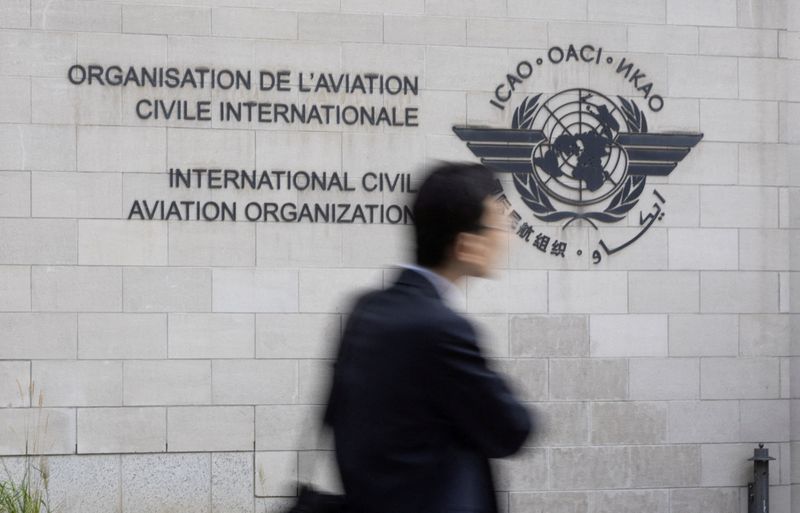
By Allison Lampert and Maki Shiraki
MONTREAL/TOKYO (Reuters) – Aviation officials from Asia are making a case for global action to reduce injuries from turbulence, with recent high-profile incidents driving calls to improve forecasting across borders at a Montreal gathering of regulators starting Monday.
While turbulence does not frequently cause fatalities, it is the leading cause of accidents, according to data from the U.N.’s aviation agency, and severe weather patterns brought about by climate change could lead to more incidents, experts say.
It’s one of several issues being tackled by global regulators at the International Civil Aviation Organization’s air navigation conference which runs through Sept 6.
Concerns about turbulence on planes have heightened since a Singapore Airlines (OTC:SINGY) flight from London in May encountered a severe incident leading to one death and dozens of injuries.
Countries like Japan, Korea and Singapore want turbulence added as a category in ICAO’s 2026 Global Aviation Safety Plan, which outlines industry priorities, according to event working papers. ICAO said a decision will be taken by its 193 member states at its triennial assembly next year.
Japan and other countries would like ICAO to improve real time coordination of weather and turbulence data sharing across borders as countries take steps to make alerts more user friendly for pilots, an official with the country’s civil aviation bureau said.
Some countries in Asia are taking early steps to make that information, now usually sent in text format, more visually accessible.
Turbulence accounted last year for around 40% of all accidents involving large aircraft in scheduled commercial operations, according to ICAO’s 2024 Annual Safety Report.

Although is not currently mandated by Japan, carrier All Nippon Airways now voluntarily airs a safety video at the start of and during flights to prevent turbulence-related accidents.
Korean Air said in August it would stop serving instant cup noodles, a popular snack in Korea known as ramyeon that requires boiling water, on its long-haul flights, part of changes in response to increased turbulence incidents.
This post is originally published on INVESTING.





